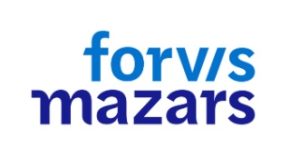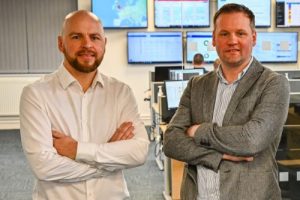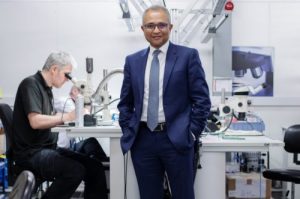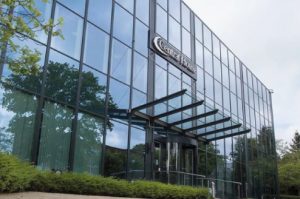Why you can’t have artificial intelligence (AI) without human intelligence (HI)
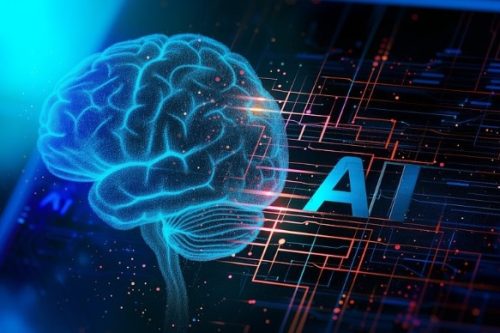
A recent report by Forvis Mazars of more than 300 C-suite executives found that 67% believed that the success of AI in business depends on human analysis and insight.
AI is seen as a tool to enhance and not replace human expertise. It’s a powerful instrument that, when used strategically, can transform business operations, drive efficiency, and create new opportunities for growth and innovation. That was the message at a roundtable staged by TheBusinessDesk.com which brought together business leaders from across the region to discuss the opportunities of AI.
The roundtable was chaired by TheBusinessDesk.com’s Yorkshire editor Sheryl Moore and hosted and sponsored by Forvis Mazars.
Opening the discussion was Matt Lomas, associate director – data and digital advisory at Forvis Mazars, who said that as businesses continue to explore AI’s potential, those who approach it with creativity, and a focus on human expertise will be best positioned to thrive in the technological revolution.
He said: “AI is just another tool in our business toolkit and amplifies human capabilities rather than eliminating them. The key is knowing how to use AI effectively.”
Matt was joined by leaders from diverse sectors including manufacturing, vehicle rental and communications, who revealed how artificial intelligence is reshaping their operational strategies.

“We’re becoming the first carpet tile manufacturer to truly embrace AI in our production,” says Payne.
The company has developed a revolutionary quality control system that uses machine learning to inspect tiles at unprecedented speeds. The AI system, developed with a startup partner, has dramatically transformed production.
“We started by teaching the machine through 300,000 tile samples, distinguishing between good, bad, and potentially acceptable tiles,” Payne shared. “It took time to embed because at the beginning the tile rejection rates were at 90%, however after a short period of time rates were down to 10%.”
The project isn’t just about efficiency. Payne sees it as a strategic move to compete with industry giants. “We’re a £25m business taking on £4bn companies who haven’t even looked at this area,” he says.
Peter Ennis, CTO of Nexus Vehicle Rental, is taking a radical approach to technological transformation and the company is using AI to completely reimagine its technology infrastructure.
He said: ‘’We’ve got 30 engineers using AI to rewrite our entire platform. What would have taken 25 years to build, can now be accomplished in six weeks.” This approach demonstrates AI’s potential to accelerate technological development dramatically.
Ennis is particularly focused on data protection and ethical AI use. “We’re hiring talent and educating the business on how to protect and use data ethically,” he explained. The company has even paused Microsoft Copilot rollout to address complex access permissions, highlighting the importance of careful implementation.
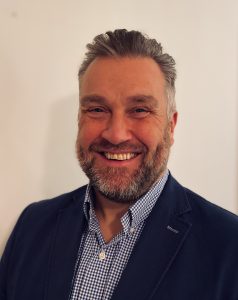
Mark Garrett
Mark Garrett, MD at Harrogate recycling broker, Clearpoint Recycling is exploring AI’s potential to transform logistics and data management. The company sees AI as a tool to enhance human capabilities rather than replace them.
“We’re looking at how AI can help us create better market information,” Garrett explained. The company aims to leverage technology to develop a more transparent commodity trading marketplace, using machine learning to analyse trading data and create more efficient systems.
Tim Downs, founder of corporate and financial PR agency, Aberfield Communications, said his strategy is focused on understanding AI’s potential while maintaining the core value of human creativity and relationship-building.
“We’re exploring how AI can help make things more efficient,” he explains. The agency is using AI tools to assist in website content rewriting, social media post generation and initial draft creation for press releases among other things
Downs acknowledges his and other industries resistance to AI. “Our industry has been built on artistry, creativity, and human relationships,” he notes. “The strategy involves demonstrating that AI is a tool to enhance, not replace, human expertise.”
The message from attendees was clear – AI is a tool to amplify human potential, not eliminate human workers.
Ennis captured the essence perfectly, saying: “AI should be a 10x multiplier to individual productivity, not a reason to reduce headcount.”
Others noted that at the core of business development is relationship building – an irreplaceable human skill.
Garrett emphasised the importance of human interaction. He said: “The human interaction bit is powerful. You still own that. AI can handle repetitive tasks, but building genuine client relationships remains a uniquely human capability.”
Liz Kaplan, CFO at vitamin distributor at Vyta Health, said the company’s approach to AI implementation has focused on operational efficiency and process transformation. This has involved the implementation of Odoo ERP, which has significant AI capabilities.
She says: “We’re leveraging AI-powered systems to streamline business operations, eliminating the need for manual data entry.”
The company has also added AI-driven inventory management tool, NetStock, Kaplan says: “It tells us what we need to buy, what to get rid of quickly, and helps with forward planning.”
While the systems have minimised the need for additional transactional staffing, allowing the company to grow without increasing administrative headcount, it has enabled the company to elevate existing employee roles.
Kaplan adds: “The staff are now able to do more interesting work, rather than just transactional processing.”
As one participant perfectly summarised the discussion, “AI is a tool that can make us better, not a threat that will make us obsolete.” The most successful businesses will be those that demonstrate to employees that AI is collaborative partner, not a competitor – leveraging technology while celebrating the irreplaceable power of human insight.

